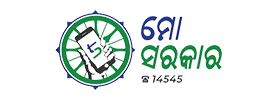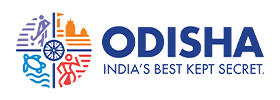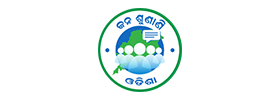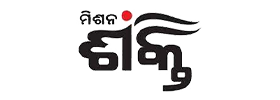Information on social welfare section of Gajapati District
Background:
Social welfare section of Gajapati District is functioning in the Collectorate campus under department of women & Child Development department of Odisha with the following detail status: The Department of Women and Child Development in Odisha was formed in the year 1994 as the nodal Department for implementing schemes related to the holistic growth and Development of vulnerable sections of the populations. The Department has an extensive field structure with the District Social Welfare Officer (DSWO) heading the District unit. Further, programme implementation at the block level is facilitated by the CDPOs assisted by Supervisors at I.C.D.S Project level . Each project is divided into different sectors each managed by a Supervisor, who looks after 20-25 Anganwadi Centers (AWCs). Each Anganwadi Centers covers a population of about 400 in the non – tribal areas and 300 in the tribal areas and is run by an Anganwadi Worker (AWW) assisted by an Angawadi Helper (AWH). Apart from these, services in the left out areas are provided by Mini Anganwadi Centers covering a population of 150-300.
Integrated Child Development Services (ICDS)
Integrated Child Development Services (ICDS) in India is the world’s largest Integrated early childhood programme& Odisha has around 71,000 sanctioned centers which provide the services throughout the state.
ICDS was launched in 1975 with the following services:
- Improve the nutritional & health status of children in the age group 0-6 yrs.
- Lay the foundation for proper psychological, physical and social development of the child
- Reduce the incidence of mortality, morbidity & malnutrition.
- Achieve effective coordination of policy and implementation amongst the various departments to promote child development.
- Enhance the capability of the mother / care giver to look after normal health and nutritional needs of the child through proper nutrition and health education.
ICDS beneficiaries and services:
To achieve the objectives a package of six integrated services is provided in a comprehensive manner to meet the multi – dimensional and interrelate needs of the children through the Anganwadi centers functioning under ICDS Projects covering Block area.
- District Collector heads the ICDS Co-ordination committee with soon meet every month to discuss issues related to ICDS.
- Sub- Collectors are the Chairperson of the ICDS who provides support & guidance.
- One ICDS Project is functioning in one block area headed by a Child Development Project Officer.
- One ICDS Project is divided into Sectors areas which are headed by Lady Supervisors.
- One Sector is divided in to Anganwadi Centers and Mini Anganwadi Centers as per Govt. population norm running by Anganwadi Worker, Helper& Mini Anganwadi Workers.
- Village level, Ward Member, Janch Committee & Mother Committee are involving implementation & monitoring of different activities of ICDS.
- Till date this District has sanctioned with 1442 no of Anganwadi Centers & 924 no of Mini Anganwadi Centers covering all the five (05) Tribal Blocks & two (02) Normal Blocks.
SERVICES PROVIDED UNDER I.C.D.S
SUPPLEMENTARY NUTRITION PROGRAMME (SNP)
With a view to improve the health and Nutritional Status of children below the age of 6yrs, pregnant women and lactating mothers, the Supplementary Nutrition Programme is considered as one of the most important components of the ICDS Programme and it is provided for the period of 300 days in a year to children below 6 yrs and pregnant & Lactating Mothers. Now as per orders of Hon’ble Supreme court in W.P (C) 196 /2001 Govt. of India has decentralized the procurement of all foodstuffs except rice (Which is issued by Central Government) to the village level throughout the State.
Guideline have been issued with regards to the followingvide L.No. 768/WCD dt. 27.07.2013 available in the Govt. website of W& CD Department.
Supplementary Nutritional Programmeunder ICDS, with two components i.e. Hot Cooked Meal and Morning Snacks for 3-6 yrs old children at AWC and Take Home Ration for 6monthes to 3yrs children and pregnant and lactating women.
NUTRITIONAL AND HEALTH EDUCATION(NHEd.)
Nutrition & Health Education (NHEd.) forms one day of the key elements of the ICDS Programmes. Women in the age group of 15-45 yrs should be given information on their health, nutrition and development needs. These are imparted through counseling sessions during home visits, fixed immunization days, VHND (Mamata Diwas) mothers meetings, Gram Sabha and during the Panchayat meetings in the community.The ICDS staff with the assistance of Medical staff is required to organize NHED camps in each month to motivate the rural women under the programme
HEALTH CHECK – UP
Health Check – Up includes
- Ante – natal care of all pregnant women
- Post – natal care of nursing mothers and care of the new born and care of children less than six years of age.
Various health services provided to the children by the AWW include the following Regular check up, recording of weight, Management of Malnutrition, treatment of diarrhea, de-worming and distribution of medicines particularly on village health & Nutrition day. The service is provided for antenatal care of pregnant women and post antenatal care of nursing mother, care of newborn baby (children) under the age group of 6 months to 6 years under the programme. Health check up is being rendered by health staff under the guidance of Medical Officers in the Anganwadi Centers with the help of Anganwadi Worker and Supervisor.
IMMUNIZATION
Immunization of infants and children against six vaccine – preventable diseases to protect children from – polliomyelitis, diphtheria, pertusis, tetanus, tuberculosis and measles. These are major preventable causes of child mortality, disability, morbidity and related malnutrition, Immunization of pregnant women against tetanus reduces maternal and neonatal mortality. The fixed immunization day for our state is Wednesday. The AWW assists the health functionaries in coverage of the target population for immunization. She helps in the organization of fixed day immunization sessions, maintains the immunization register and follows up to ensure full coverage.Immunization camps are being organized with the help of Medical Officer / CDPOs/ Supervisors / Anganwadi Workers on the VHND Days i.e on Tuesday and Friday of each week.
REFFERAL SERVICES
During health check up, home visits and growth monitoring, sick or malnourished children, at risk pregnant women and neonates in need of prompt medical attention are provided referral services through ICDS. The AWWs are also oriented to detect disabilities in young children and all such cases are referred to the medical officers. The effectiveness of this service depends ontimely action, co-operation from health functionaries and the willingness of families to avail these services.
PRESCHOOL EDUCATION
Preschool education is a crucial component of the package of services envisaged under the ICDS scheme. It aims at universalization and qualitative improvement of primary education, by providing the child with the necessary preparation for primary school, especially in remote and social – economically backward areas. It brings young children together at the AWC, where different activities relating to physical, cognitive, social, emotional, creative development of children are facilitated by the AWW. All children aged 3-5+yrs come under the ambit of preschool education. The aim and object of the programme is to impart education to the children within the age group of 3 to 5+ years through action song, storytelling and play etcfor mental and social development of children.
- The weekly session as per New Arunima is being followed .
- New Arunima Abhyasa pustika for two different age groups .
- Supply of pre school uniforms to each pre school child.
- Supply of bell for each Anganwadi
- Observation of fixed day like ECCE Day, Parents day,Grand parants day,Childrens day.
MAMATA DIWAS – VHND
It is a joint initiative to strengthen the ongoing mother and child health services by the department of health and family welfare and DWCD. This is held throughout the state at AWCs once in a month either on Tuesday or Friday to provide the following services.
- Health promotion of Adolescent Girls.
- Ante Natal Care and post Natal Care Services for Pregnant Women & Lactating Mothers.
- Promotion of Infant and Young Child feeding practices.
- Growth Monitoring of Children up to 6yrs.
- Identification, referral and follow –up of malnourished children.
- Management of common childhood illnesses.
- Family welfare services.
- Counseling on health promotion.
MAMATA SCHEME:
To alleviate the issue of maternal and infant under nutrition, Government of Odisha, has launched a state specific for pregnant women and lactating mothers called Mamata – a conditional cash transfer maternity benefit schemes.
Pregnant and lactating women of 19 and above age group, for the first two live births except those who avail maternity benefit (Who are themselves employees or wives of employees of State Govt. / Central Govt. / PSUs) are eligible for this scheme.
Age, number of live births and employment status would be as reported by the beneficiary in the format prescribed, in case of wrongly claim by the beneficiary, the amount paid to her would be recovered as per law. A signed undertaking to this effect will be necessarily taken from the beneficiary at the time of registration under Mamata.
Goal and objectives
- Contribute as a factor in reducing maternal and infant mortality.
- Improve the health and nutrition status of pregnant and lactating mothers and their infants.
Objectives:
- To provide partial wage compensation for pregnant and nursing mothers so that they are able to rest adequately during their pregnancy and after delivery.
- To increase utilization of maternal and children health services, especially ante-natal care, postnatal care and immunization.
- To improve mother and child care practices, especially exclusive breastfeeding and complementary feeding of infants.
NUTRITION OPERATION PLAN:
The Nutritional Operation Plan (NOP) supported by DFID (Department of International Development) has emerged as an evidence bases plan to accelerate the pace of underweight reduction in Odisha. It has been developed bases on the following principles and strategies to support convergent health and nutrition services at the grass root level encompassing:
- Disease control and prevention activities.
- Education to improve home bases newborn and child care.
- Feeding practices including diet diversification and micronutrient supplementation and greater convergent health and nutrition actions.
- Uninterrupted and qualitative delivery of ICDS services with a focus on nutritionally vulnerable, poor and socially excluded.
- Improve departmental coordination between ICDS, Health, Rural Water Supply and Sanitation (RWSS) and Panchayati Raj (PR) for improving child survival in the state.
SCHEME FOR ADOLSCENT GIRLS:SAG
The scheme aims at covering all out of school adolescent Girls in the age group of 11 to 14 yrs who would assemble at the AWC on a fixed day at regular interval.
Service of the schemes: There are two major components under the scheme
- Nutrition Component
- Take Home Ration for
- 11-14 yrs : Out of School Girls
- Non – Nutrition Component
- For out of school Adolescent Girls: (2 to 3 times a week)
- IFA Supplementation
- Health check – Up and referral services.
- Nutrition & Health Education (NHEd).
- Counseling / Guidance on family welfare, ARSH, Child Care Practices.
- Life Skill Education and accessing Public Services.
11-14 yrs(Out of school
- Nutrition & Health Education (NHEd).
- Counselling / Guidance on family welfare, ARSH, Child Care Practices.
- Life skill Education and accessing public services.
FINANCIAL NORMS:
Nutritional component i.e THR @Rs.9.50/- per Adolescent Girls is being provided for 25days in a month.
SEXUAL HARRASHMENT OF WOMEN AT WORK PLACE (Prevention, provision and redressal) ACT 2013
This is the act to provide protection against sexual harassment of women at work place and for the prevention and redressal of complaints of sexual harassment and for matters connected there with or incidental thereof. The act has been implemented during the year 2013.
As per the act ,communicated vide Govt letter no 23399 dated 7.12.2013 ,Collector shall the Dist Officer for local complaint committee formed at Dist level .
Every employer of a work place shall,by an order in writing ,constitute a committee to be known as internal complain committee as per the Para-4,Rule-1of the act.
PROTECTION OF WOMEN FROM DOMESTIC VIOLENCE
Domestic Violence refers to any act, omission or conduct which causes harm or injury or has the potential of harming or injuring the health, safety or well-being of women or any child in a domestic relationship (Arising out of living together with or without marriage). The act has been implemented since 26.10.2006 .Following are the stakeholders under the Act.
- Protection Officer
- Service provider
- Police
- Legal Service Authority








